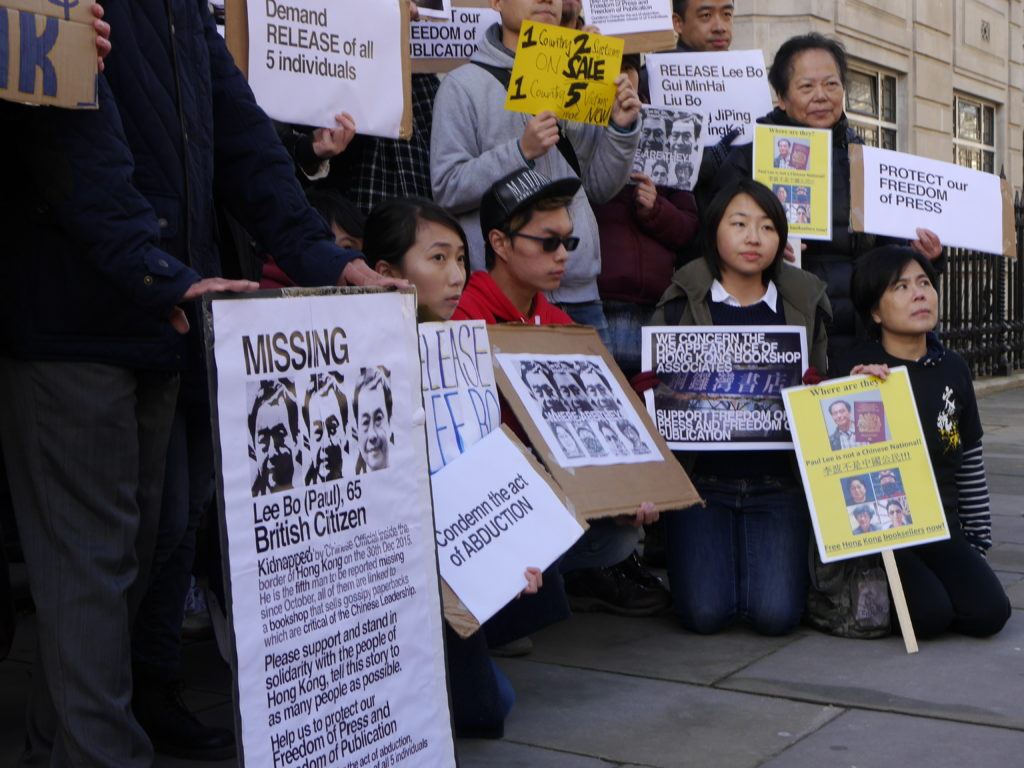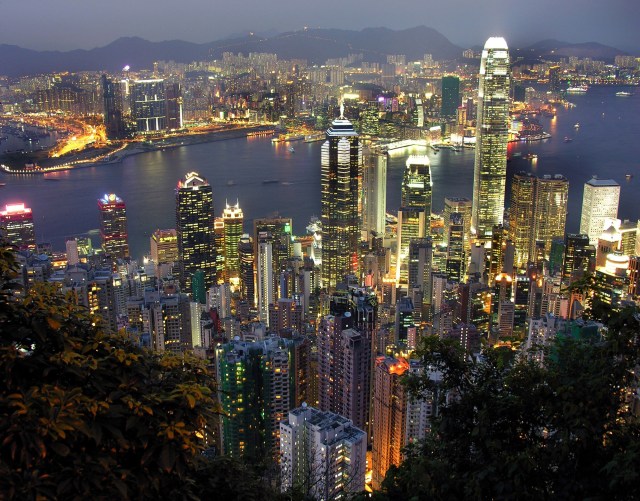The silencing of those who speak out against the Chinese regime should worry us all (Photo Credit: Juergen Effner/DPA/PA Images)

Just under a week ago, I was denied entry to Hong Kong, simply because I have been a vocal critic of China’s human rights record (including for UnHerd). I was taken aside by immigration officials, questioned and put back on a plane to Bangkok, all within two hours of landing. The incident drew international media and political attention, particularly because the decision to refuse me entry had been made not by Hong Kong authorities, but by the Chinese regime in Beijing. It raises fundamental questions about Hong Kong’s autonomy and basic freedoms under “one country, two systems”.
Yet while my experience was unpleasant, unnecessary, unjustified and inconvenient, I was unharmed. I flew back to Bangkok, and from there back to London. I can see my family and friends again, and I can speak out freely. Chinese critics of the Communist Party face an altogether far graver threat.
Two years ago today, Gui Minhai, a bookseller and publisher in Hong Kong, disappeared while on holiday in Thailand. Gui, born in China but a Swedish citizen, ran Causeway Bay Books along with four colleagues, publishing and selling works critical of China’s Communist leaders. Gui was abducted by Chinese security agents in Thailand, and taken by force to mainland China. His four colleagues also disappeared at various moments in October 2015 – one of them, Lam Wing-kee, arrested in Shenzhen, just across the border from Hong Kong, another, Lee Bo, a British national, abducted from his Hong Kong warehouse. Yet Gui’s four colleagues were all gradually released one by one in the following months. Gui, however, remains missing.
For the first three months after his disappearance, there was no trace of Gui Minhai. He, then, suddenly appeared giving a ‘confession’ on Chinese state television, claiming he had voluntarily handed himself over to the Chinese police in relation to an alleged car accident that occurred in 2003. His daughter Angela, who studies in Cambridge and has been campaigning for her father’s freedom, was able to speak to him by telephone three times in the first half of 2016, but has not heard from him for sixteen months. He has been denied access to legal counsel and Swedish consular assistance. He has not been officially charged or tried, and his whereabouts are unknown.

Two years on, it is time for the international community to ask some very serious questions of China. It is time to speak up for Gui Minhai. The Swedish government and others have been remarkably quiet, claiming to be working through diplomatic channels to assist Gui – yet after two years it is time to conclude that quiet diplomacy has not worked.
China has cleverly withheld information about why Gui is being detained, making it awkward for international human rights organisations to take up his case. Astonishingly, only PEN International, of which Gui is a member, has spoken out. That must change. This is surely a case of enforced disappearance and arbitrary detention, which requires action by the United Nations Working Group on Enforced Disappearances or the Working Group on Arbitrary Detention.
Angela Gui has spoken at the United Nations, the U.S. Congress, and the British Parliament, and written an op-ed for The Washington Post, but her appeals for help appear to have fallen on deaf ears. She herself has faced threats and surveillance. Yet as she says, this is not about one man alone. “This is about China actively extending its control beyond its borders,” she argues:
“This is about China kidnapping and illegally detaining more and more people because of their political beliefs. It’s about European citizens no longer being able to know that their human rights will be protected … In what has been called ‘the darkest moment’ for human rights in China in recent years we have to make sure that people like my father are not forgotten. Because to stay silent over what happened to him is to guarantee that it will happen again.”
When I was denied entry to Hong Kong, many people spoke up for me. The British Foreign Secretary Boris Johnson and US Congressman Chris Smith released statements. Hong Kong legislator Ray Chan courageously staged a protest in the Legislative Council, holding an enlarged photograph of me with him, taken in London two weeks earlier, and he was thrown out of the chamber for doing so. I am deeply grateful for such support, which is important, not for me personally, but for Hong Kong and the principles at stake – for this is not about me, it is about Hong Kong and its future.
But if such statements can be made in defence of a British national denied entry to Hong Kong, shouldn’t there be a far louder outcry when a Swedish national is abducted and disappeared into mainland China and held almost incommunicado for two years? When Angela asked me if I would speak at a vigil outside the Chinese embassy in London today to mark the second anniversary of her father’s abduction, I immediately agreed. I know how important solidarity is. But I asked her who else would be speaking. Her reply was heartbreaking:
“To be honest, you are the only one speaking out for my father in Britain right now”.
That must change. Join us, and ask China: Where is Gui Minhai?










Join the discussion
Join like minded readers that support our journalism by becoming a paid subscriber
To join the discussion in the comments, become a paid subscriber.
Join like minded readers that support our journalism, read unlimited articles and enjoy other subscriber-only benefits.
Subscribe